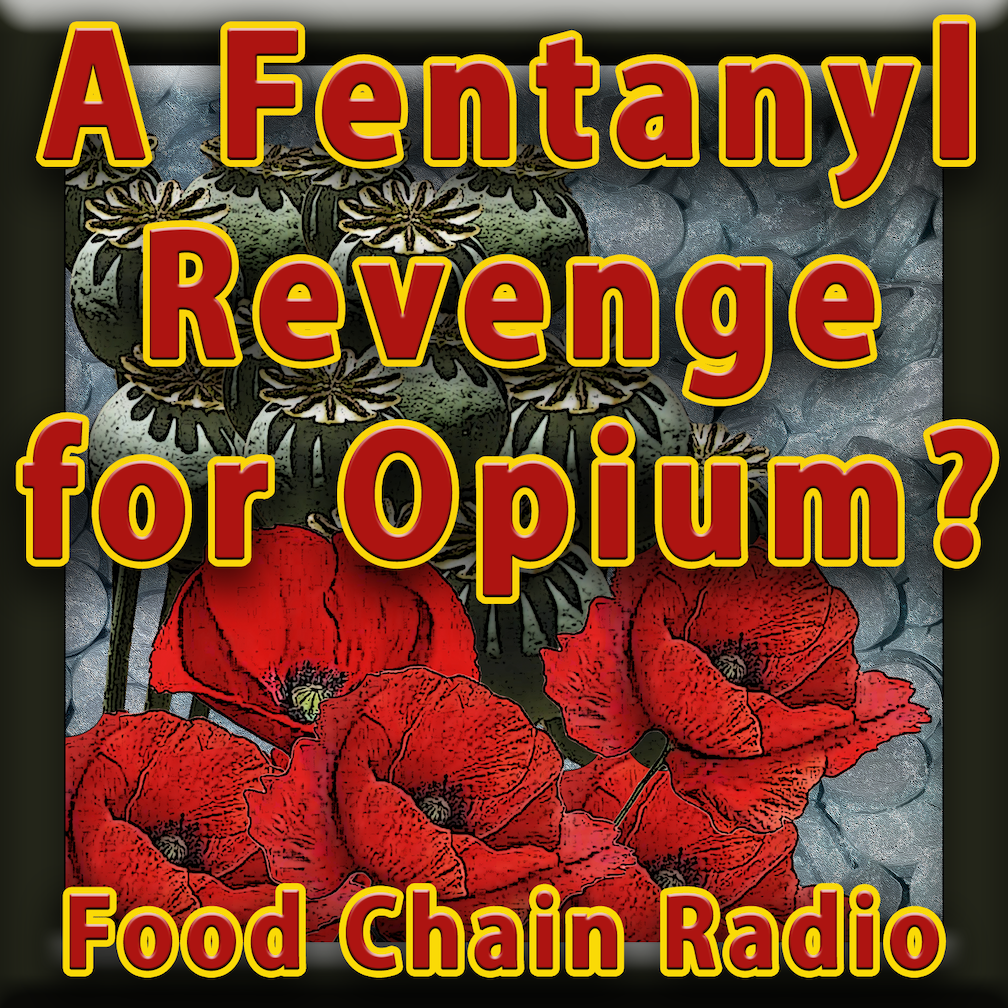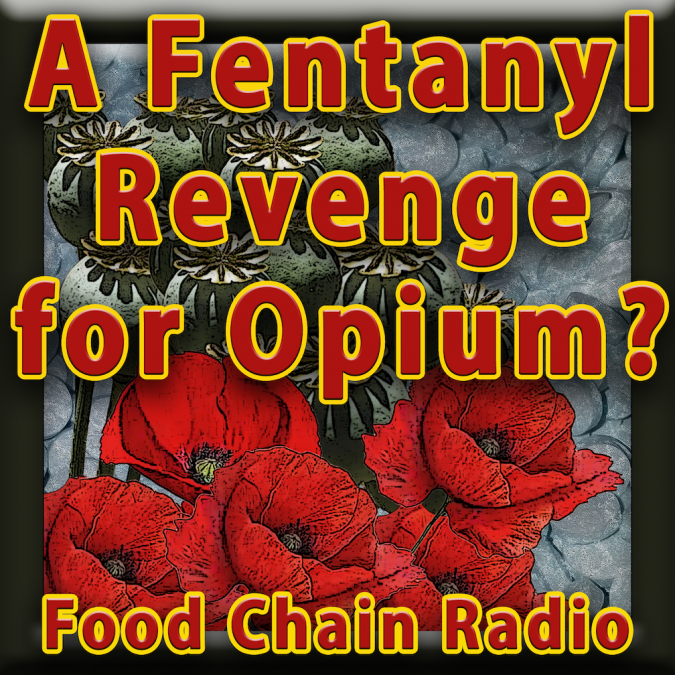
Farming with the Ancients
September 30, 2021
Green Acres, Again!
October 14, 2021GUEST: Dr. Daniel Ciccarone Professor of Family Community Medicine University of California, San Francisco
Between 1839 and 1860, China’s Qing dynasty fought two wars against Western powers. The first was with Great Britain, the second with Great Britain and France.

Michael Olson Food Chain Radio – A Fentanyl Revenge for Opium?
The reason for the wars was opium. The Western powers wanted to sell opium to China, while the Qing dynasty did not want them to sell the opium. These wars would go down in history as the Opium Wars.
In both wars modern military technologies enabled the Western powers to roll over of the Qing, compelling it to grant favorable tariffs, trade concessions, reparations and territory to the invading powers, including the port of Hong Kong.
The victory by the West also crushed all hope the Qing had for controlling the nation’s consumption of opium, and by the 1890s, China had an estimated fifteen million addicts.
One would think that a nation with 9,000 years of history would have a long memory, and so it is likely that the Chinese have not forgotten the humiliation the nation suffered at the hands of the West during those opium wars.
Today it is the West that is suffering the humiliation of addiction, only now the addiction is to heroin, which is far more potent than opium; and to fentanyl, which is 30 to 50 times more potent than heroin; and to Carfentanil, which is 5,000 times more potent than heroin, and 10,000 times more potent than morphine. Carfentanil is so potent international governments are calling it a weapon of mass destruction.
These derivatives of the opium poppy lead us to ask:
Leave Comment Below: Who wants to see us dead?
Michael Olson’s Three Laws of the Food Chain
#1 Agriculture is the foundation upon which we build all our sand castles.
#2 The farther we go from the source of our food, the less control we have over what’s in that food.
#3 Cheap food isn’t! READ MORE




